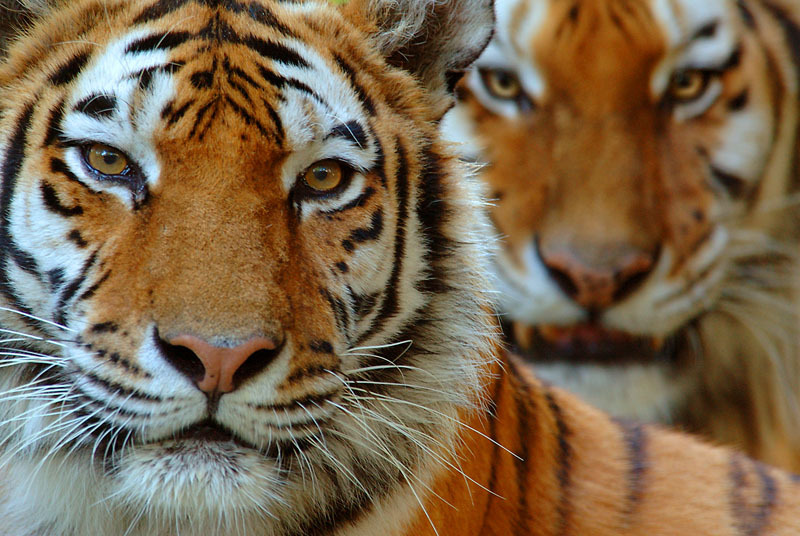A recent preliminary assessment of 63 legally protected areas in seven tiger range countries shows that only 22, or 35%, maintain WWF’s minimum standards of protection. This indicates that the areas set up to protect tigers and other threatened species are not necessarily the refuge they are designed to be, says WWF.
“Poaching is the most immediate threat to tigers and protected areas are the first line of defence against poaching,” says Mike Baltzer, Leader of WWF’s Tigers Alive Initiative. “If this preliminary assessment reflects the full situation on-the-ground, then protected areas are not functioning as an effective safe haven for tigers. Without places tigers can be safer from poaching, there is no hope to meet the target of more than 6,000 tigers by 2022.”
In November 2010 at the “Tiger Summit” in St. Petersburg hosted by the Government of Russia and the World Bank, the 13 Tiger Range Governments and partners committed to doubling the number of wild tigers by 2022. From 15-17 May 2012, they will meet again to assess progress and plan the next steps.
Poaching of tigers, to meet consumer demand for their body parts and products, is now the main factor reversing the gains made by governments, donors and other partners working towards the 2022 goal. The meeting in New Delhi next week provides a perfect opportunity for the 13 countries to immediately launch an elevated operation to improve the protection of sites critical to tigers and take deliberate action towards Zero Poaching.
WWF’s internal preliminary assessment covered 84 locations, 63 of which are legally protected areas, in seven of the 12 countries where WWF currently works on tiger conservation. Scientists, researchers and managers working in the field, have determined these sites to be critical for wild tiger population growth.
Each site was evaluated on three critical factors for protecting tigers: the number of protected area staff, the use of law enforcement monitoring tools, and whether the park was officially protected by law. Data for the assessment was collected from published sources and through a survey of WWF field staff and managers of the sites wherever available.
Results from the assessment showed that staff and WWF field personnel from 41 of the 63 protected areas, or 65%, feel there are not enough staff to protect those areas and achieve Zero Poaching. One example is Malaysia’s Royal Belum State Park, critical for the survival of the Malayan tiger and where considerable poaching activity has been documented. Although occupying an area of over 1,000 km2, the park only has 17 enforcement staff. In contrast, protected areas such as Kaziranga National Park in India, with approximately 800 enforcement staff for about 860 km2, have been able to stem poaching activity. In Nepal, 2011 was recently celebrated as a Zero Poaching year for rhinos, which was largely attributed to the increase of range posts across several protected areas from 7 to 51.
The assessment also indicated that only 18 of the protected areas surveyed, or 29%, are currently using computer-based, law enforcement monitoring systems to help them manage their sites more effectively; the majority still rely on manual analysis. The number using computer technology should increase as two new systems, MSTrIPES and SMART, are rolled out in many protected areas in the next few months.
“Clearly, a large number of areas important for tigers urgently need increased investment in protection and enforcement,” said Mr. Craig Bruce, WWF’s expert on enforcement and protection of wild tigers. “Tiger range governments should immediately and dramatically increase their commitment and investment in securing these sites. They should ensure there are sufficient, effective and dedicated enforcement teams on the ground, working towards Zero Poaching.”
WWF has identified three actions tiger range governments can take immediately to launch an elevated operation towards Zero Poaching. These include identifying and delineating the most important sites requiring good protection from poaching, and ensuring these sites have sufficient numbers of enforcement staff who are well trained to monitor and improve their effectiveness by using monitoring systems. WWF also suggests that the police and judiciary need to help to ensure strict punishment on poaching and to actively engage local communities living adjacent to important tiger conservation areas.
For further information:
Soh-Koon Chng, Tigers Alive Initiative, +65 9772 2552, skchng@wwf.org.my














